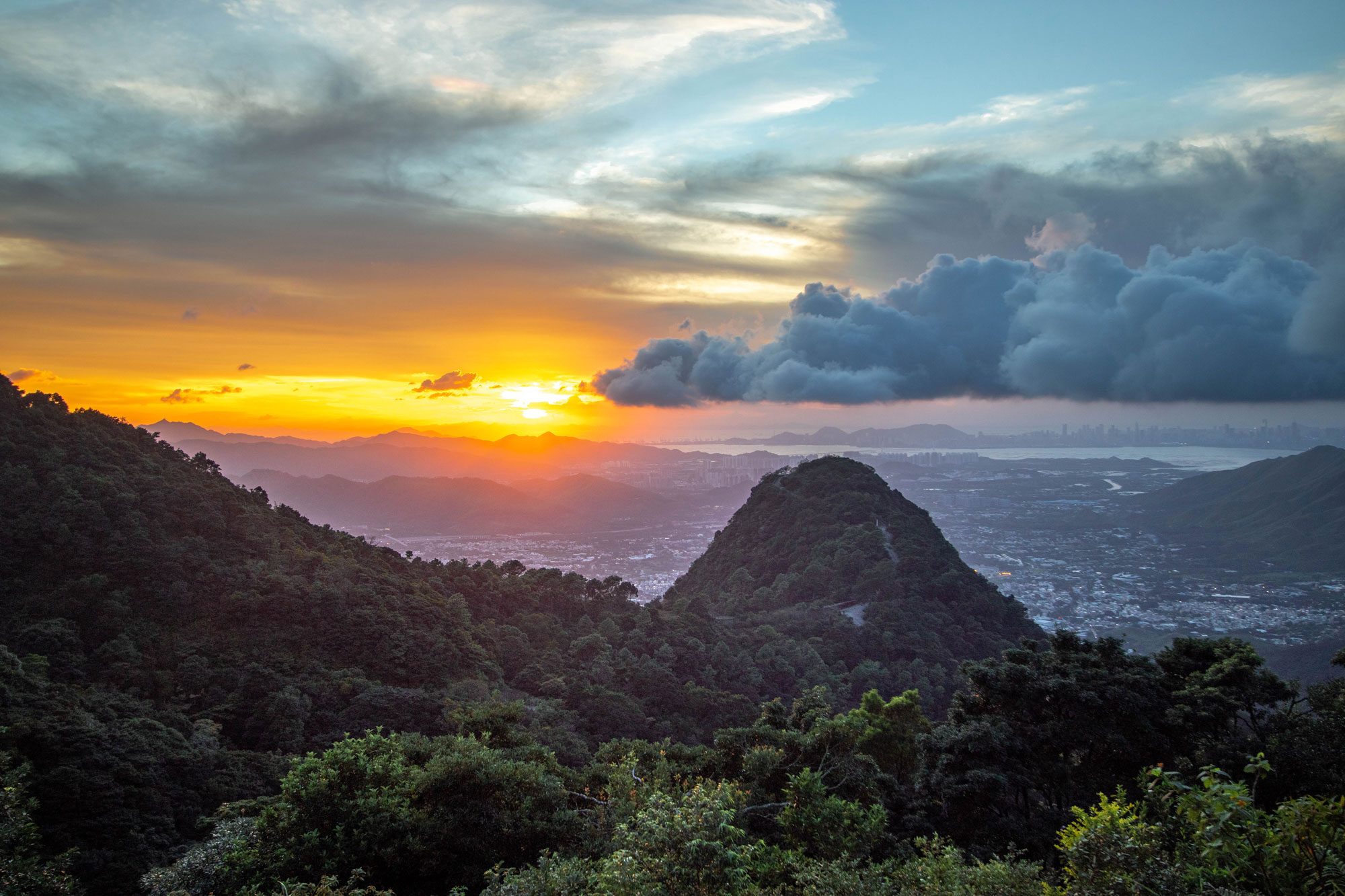
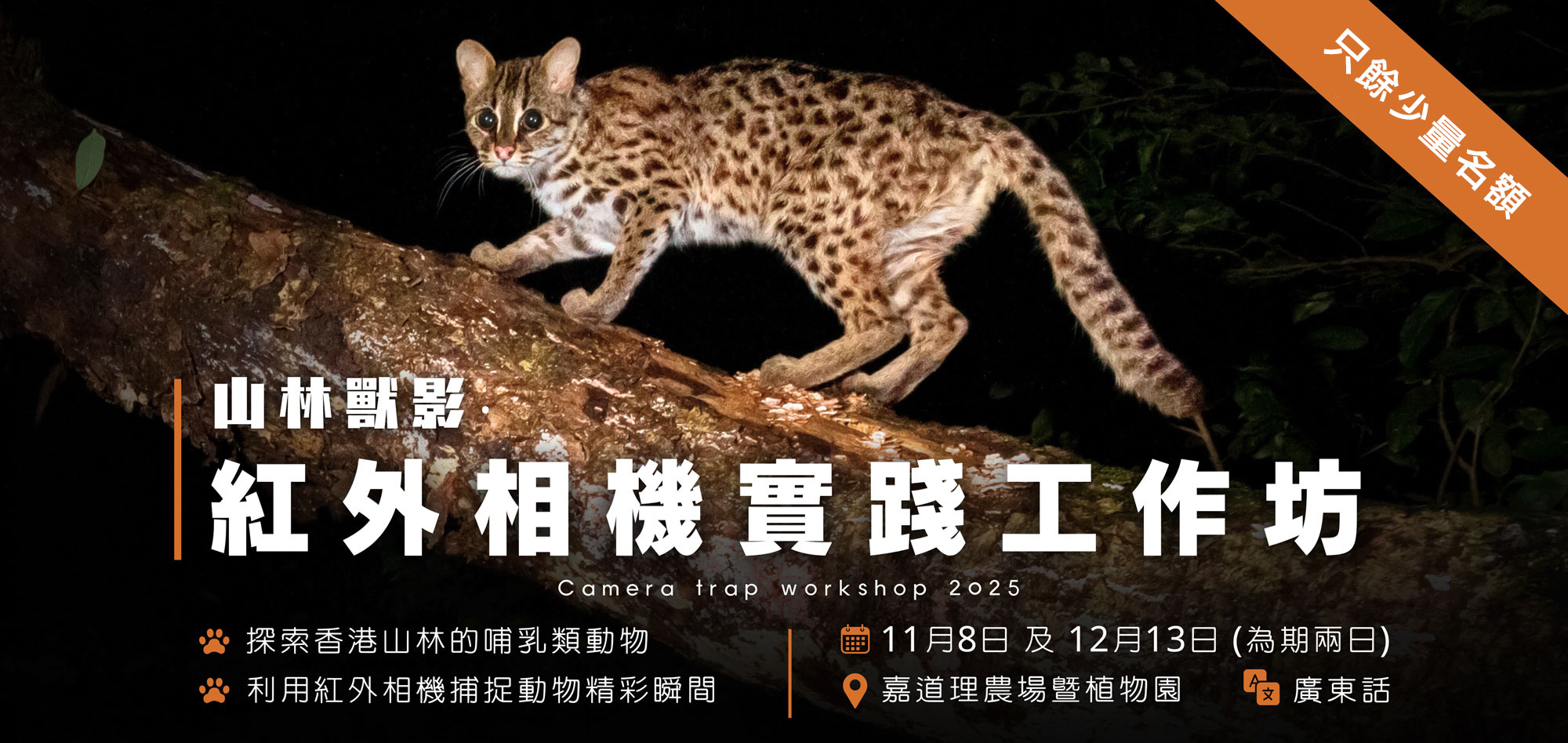
Kadoorie Farm and Botanic Garden (KFBG) spans approximately 148 hectares and borders Tai Mo Shan Country Park. Managed as a private nature reserve, it offers a safe and diverse habitat for local wildlife, earning its reputation as a “paradise for animals”. The farm has recorded 34 species of mammals to date and is known to have one of the highest densities of Leopard cats in the world.
Our previous infrared camera workshops received overwhelming praise from participants. They not only mastered camera trapping skills, but also successfully captured images of various local mammals such as Masked palm civets, Small Indian civets, Leopard cats, Barking deer and East Asian porcupines. Participants also experienced the excitement and rewards of ecological fieldwork.
If you’ve ever wondered how Hong Kong’s mammals live in the wild and wish to participate in hands-on ecological research by using infrared cameras to track their movements, this workshop is a rare opportunity you won’t want to miss!
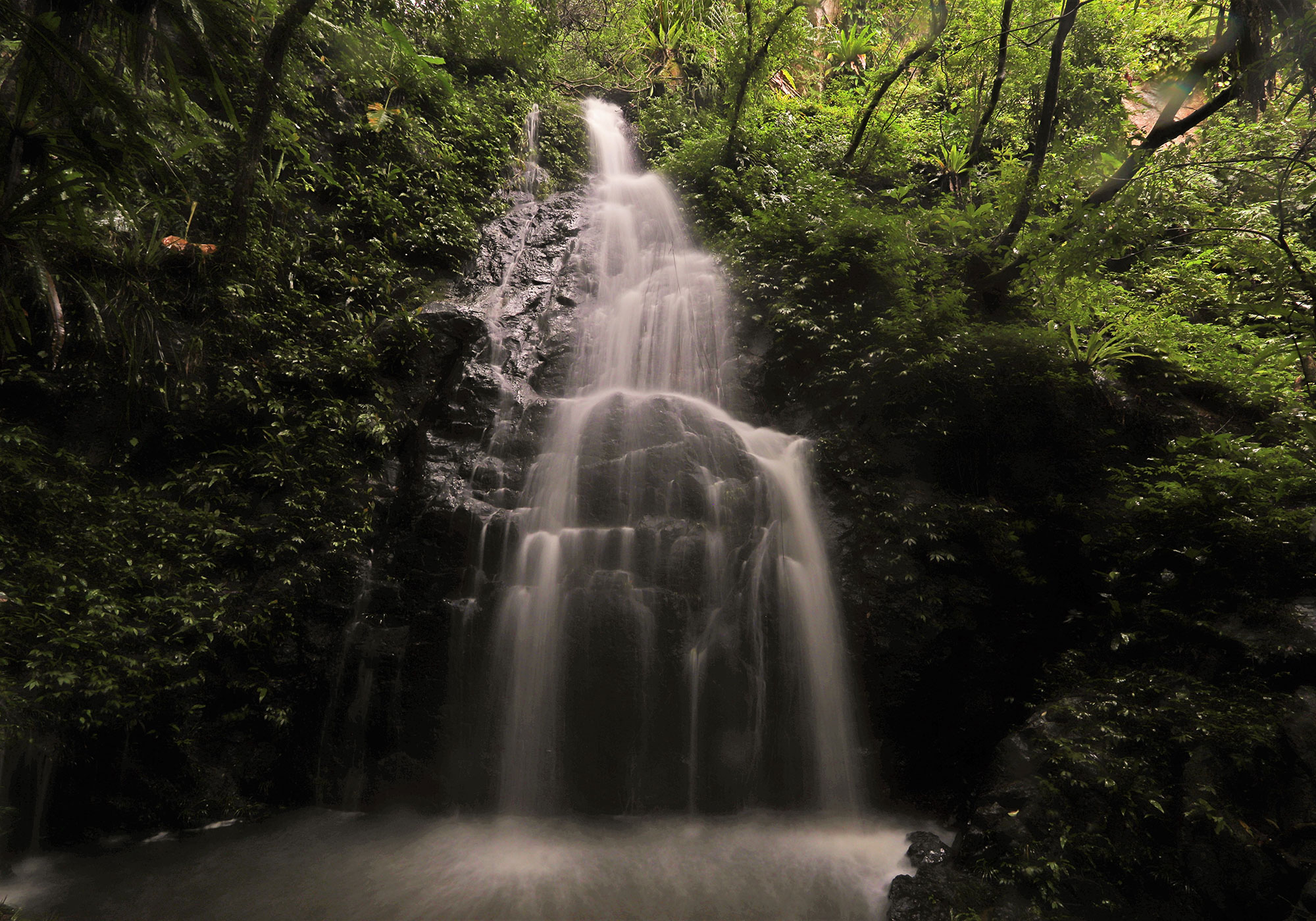 |
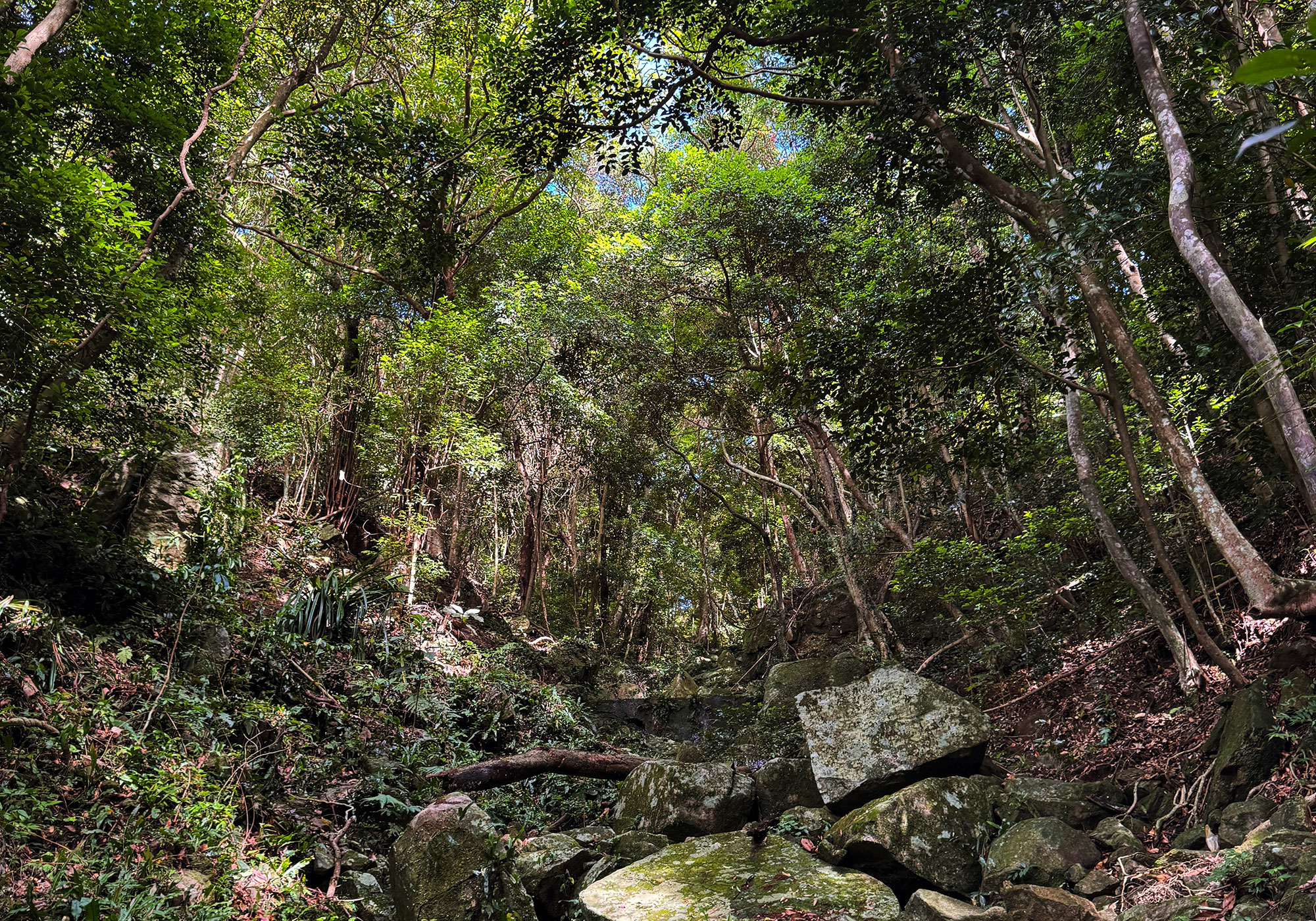 |
| KFBG is not only a scenic place but also a thriving habitat for diverse wildlife | |
Participants will:
- Learn about Hong Kong’s medium-to-large-sized terrestrial mammals.
- Master the use of infrared camera traps for ecological surveys.
- Personally deploy infrared cameras at KFBG and analyse the captured imagery data under professional guidance.
- (Optional) Join a special night walk session in KFBG (usually closed to the public during evening hours) to track mammal and other nocturnal wildlife activity.
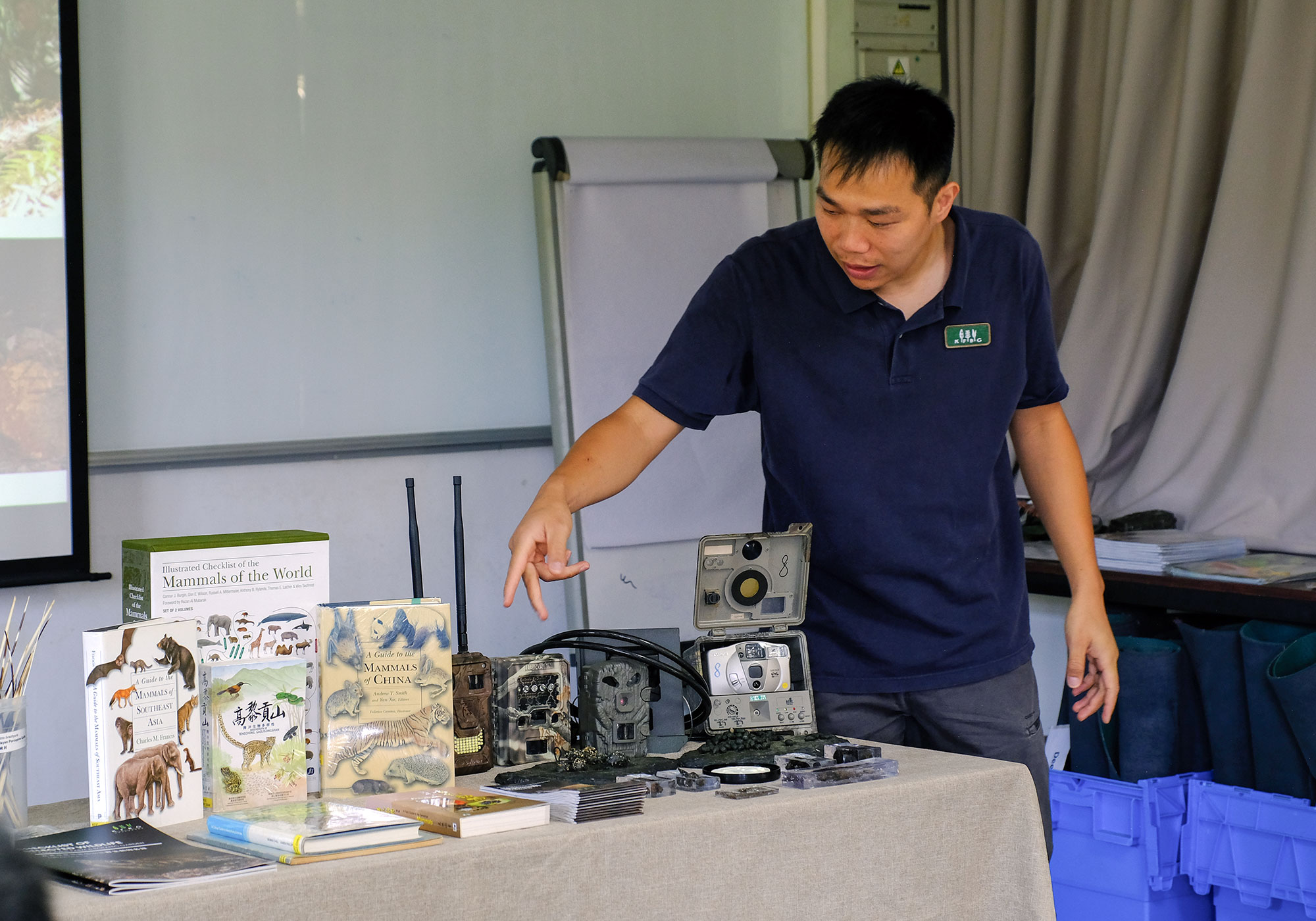 |
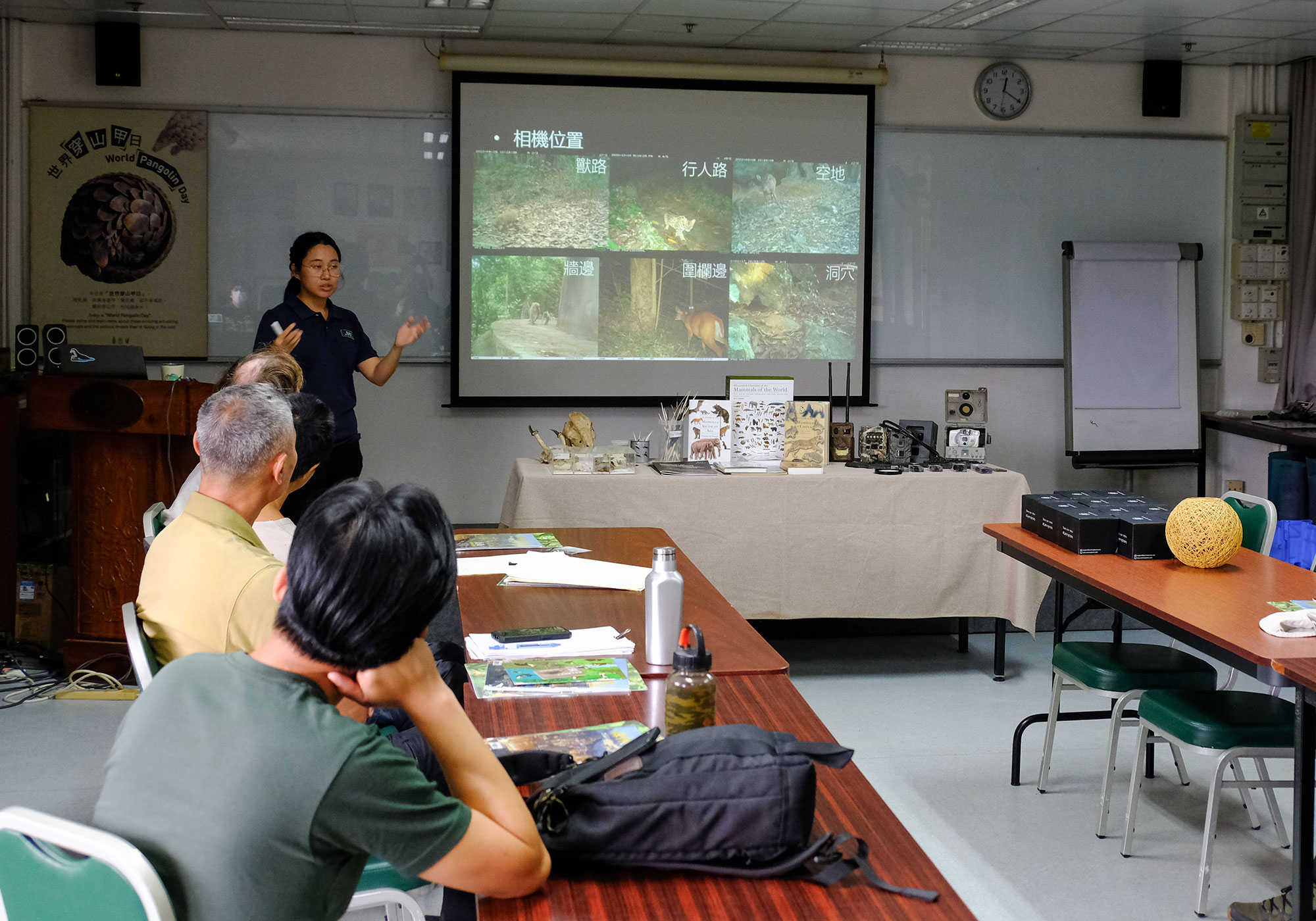 |
| Instructors introduce the theory and practical applications of infrared cameras | |
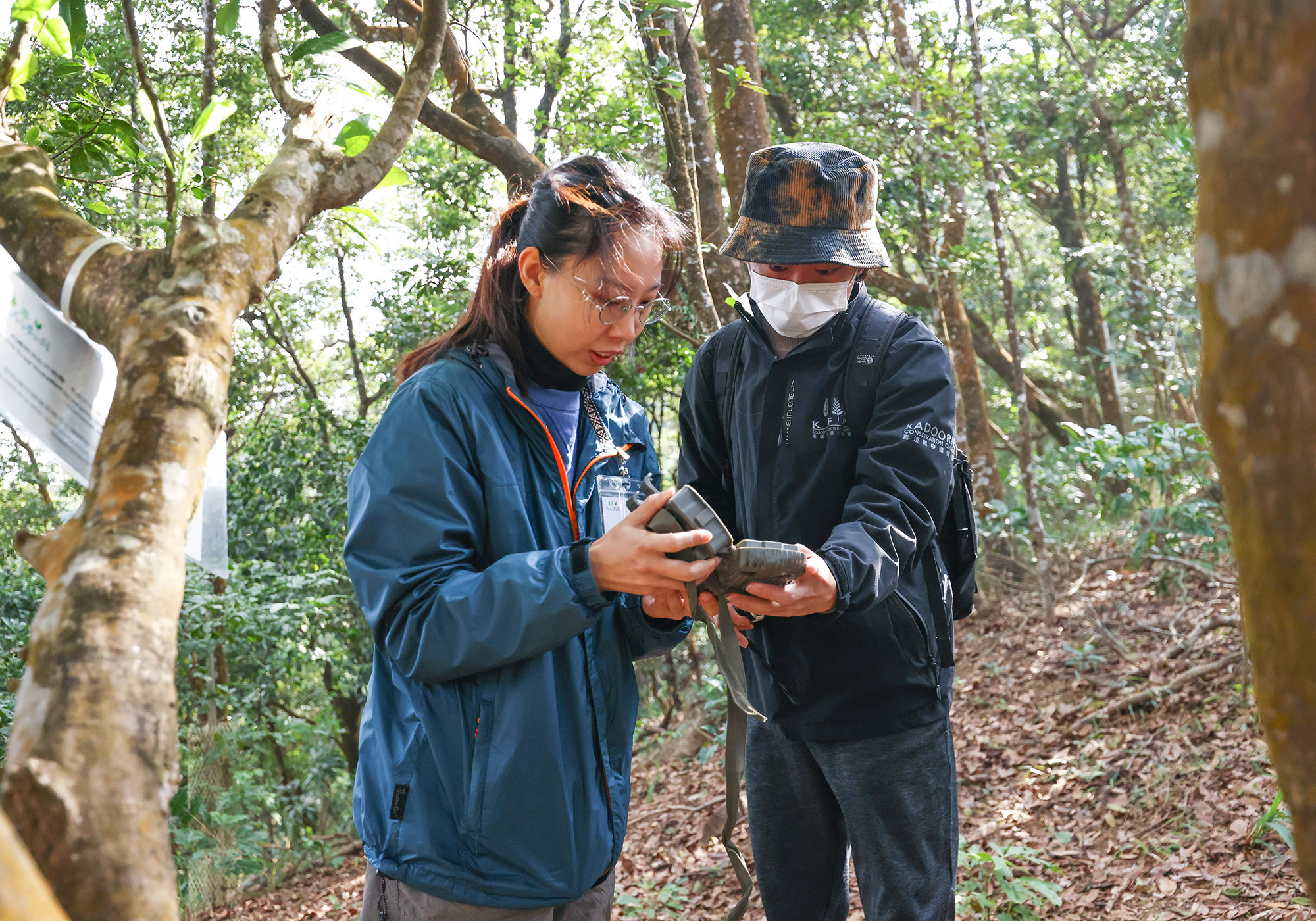 |
 |
| Participants set up infrared cameras under the guidance of instructors | |
Workshop Highlights
- Indoor lectures combined with field practice, emphasising both theory and hands-on learning.
- Direct guidance from experienced field conservationists, deepening knowledge of local mammal ecology.
- Collaborative group learning to hone observation and analytical skills.
- Hands-on infrared camera training in a real ecological survey setting.
- Friendly team competition – groups will compete to document wildlife, with prizes for the most outstanding
- Keep your wildlife photos – participants will receive all wildlife footage captured by themselves as a personal
- Post-workshop volunteering opportunities – interested participants may volunteer for KFBG’s ongoing mammal monitoring programme.
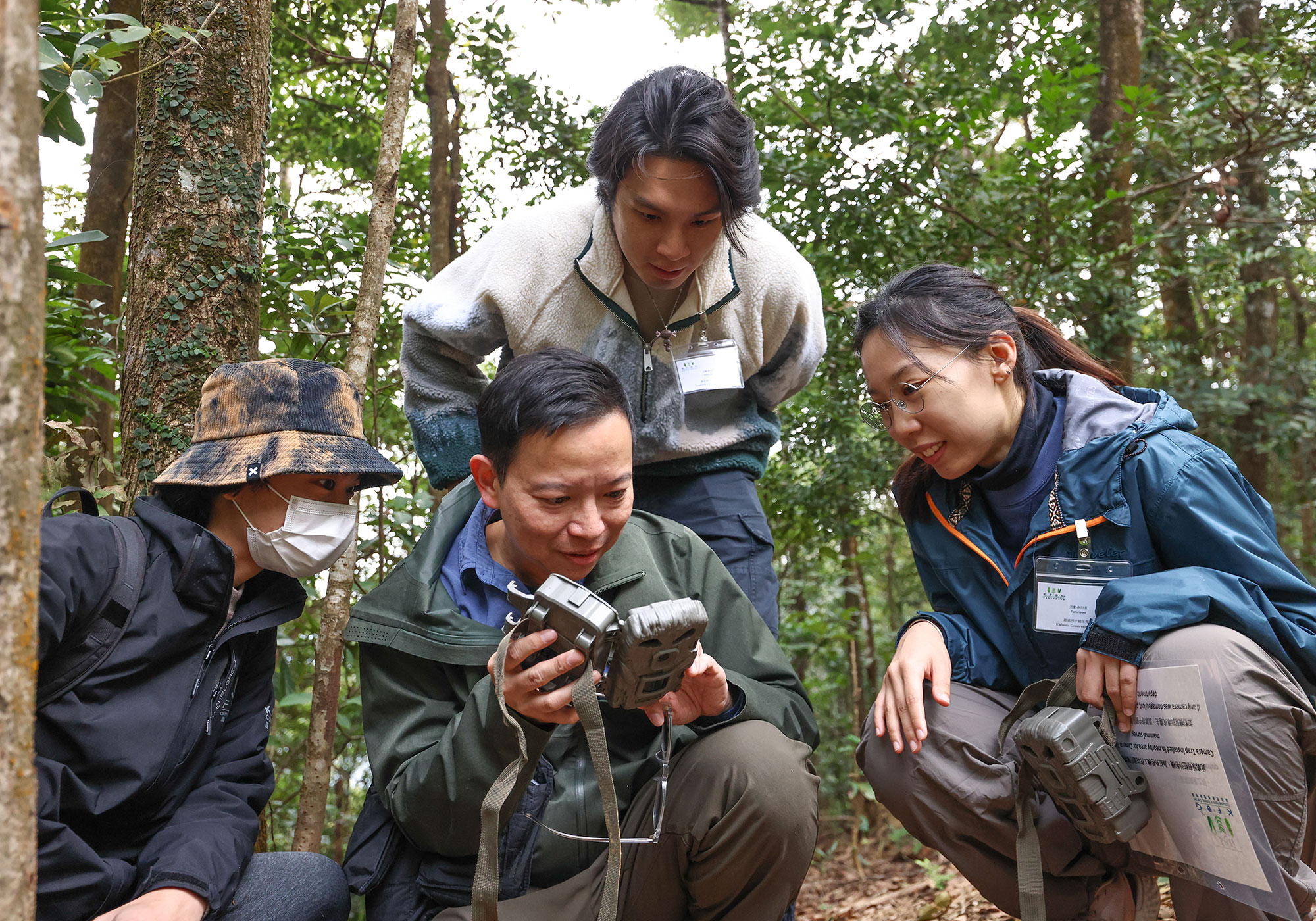 |
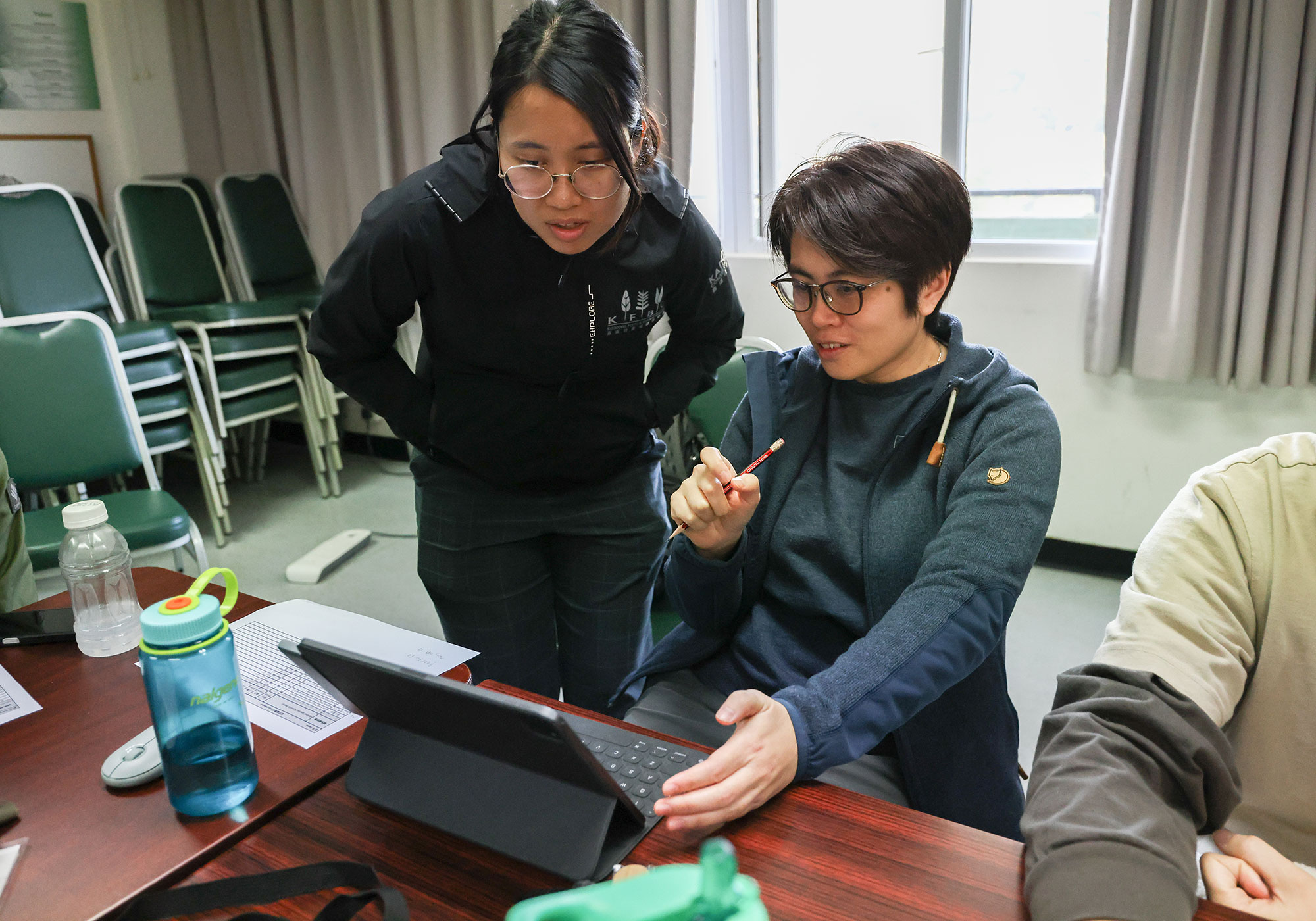 |
| Participants very happy about the outcome | Under instructors’ guidance, participants learn to analyse camera trap data and identify species |
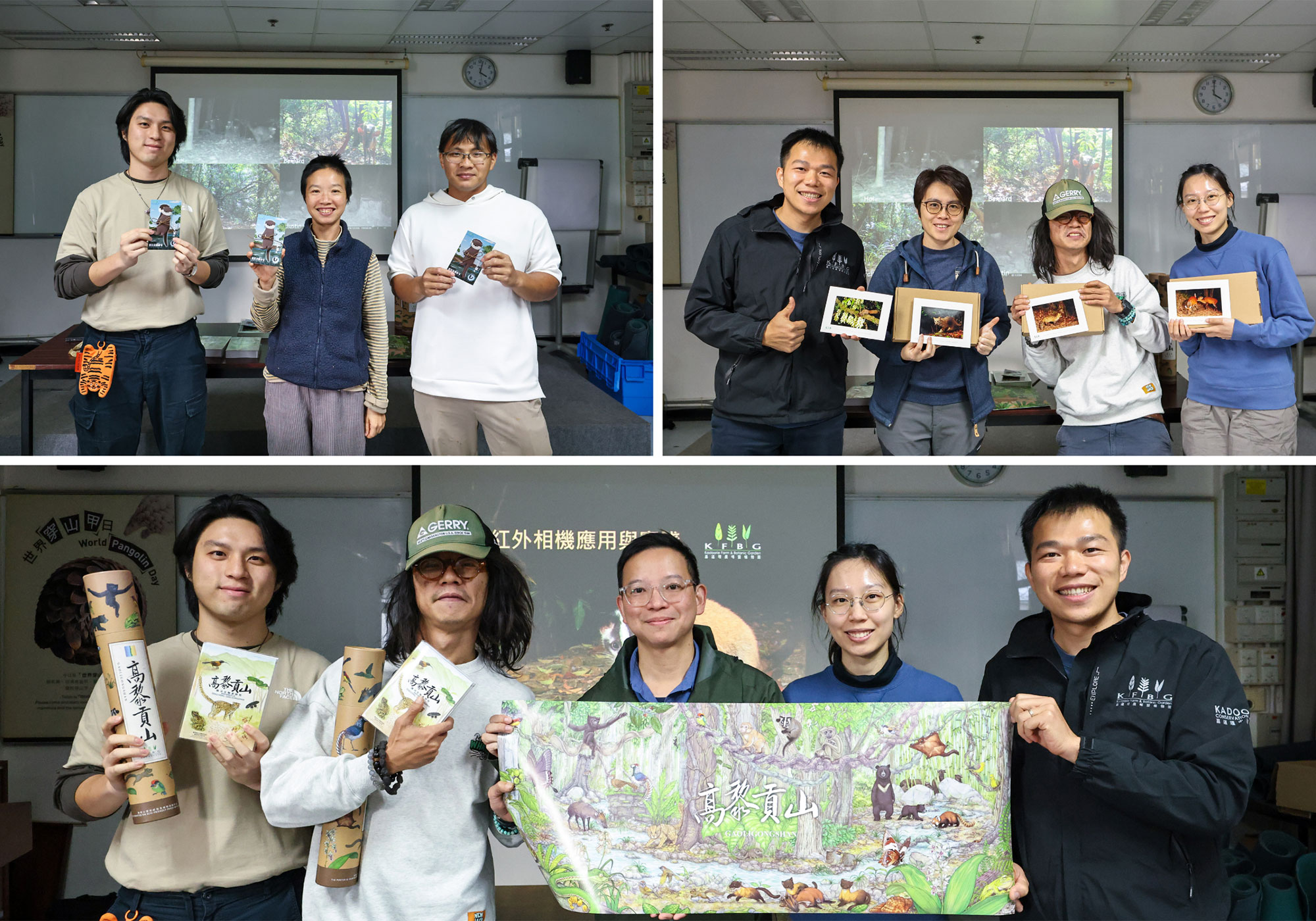 |
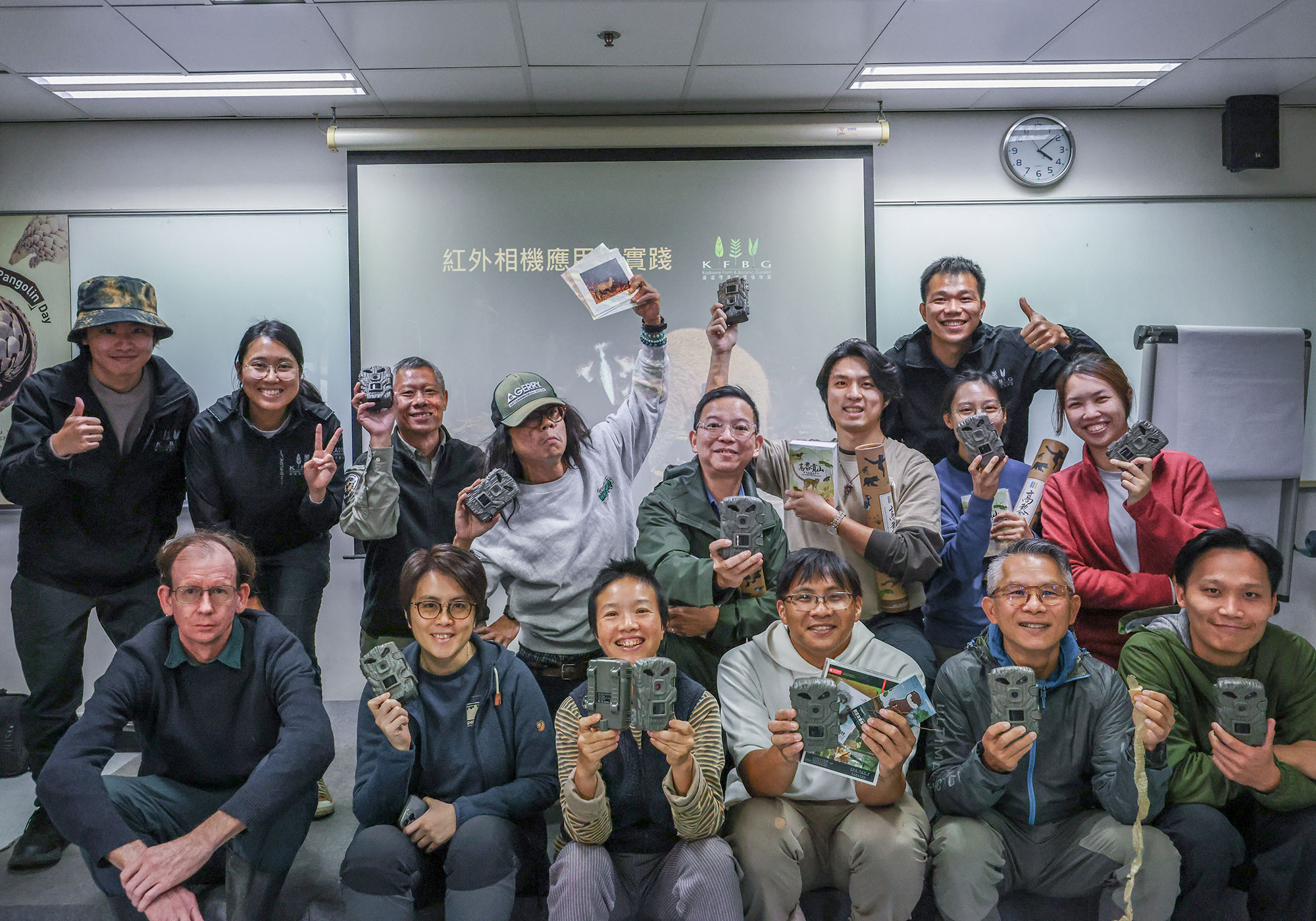 |
| Excellent performance team receive souvenirs from KFBG | A joyful group photo wraps up the experience |
Expert Instructor Team – Kadoorie Conservation China
- With over 20 years of dedicated wildlife conservation work across southern China and the region, KCC team has accumulated extensive expertise in field biodiversity survey, endangered species conservation, critical ecosystem protection and scientific research.
- Pioneering the application of infrared camera technology for ecological monitoring in China, KCC’s intensive camera trap surveys have successfully led to the discoveries of numerous elusive species of conservation concern such as Red serow (new country record), Marbled cat, Sun bear, Asian Small-clawed otter, Owston's civet, Asian golden cat and Anhui musk d These findings have directly contributed to subsequent conservation efforts.
- KCC team has successfully captured all medium-to-large terrestrial mammal species in Hong Kong using infrared camera, providing invaluable data for local biodiversity research.
- Has published over 100 scientific papers in international academic journals covering diverse topics including species new to science, new records, , biodiversity monitoring, wildlife trade, species conservation and environmental education.
 |
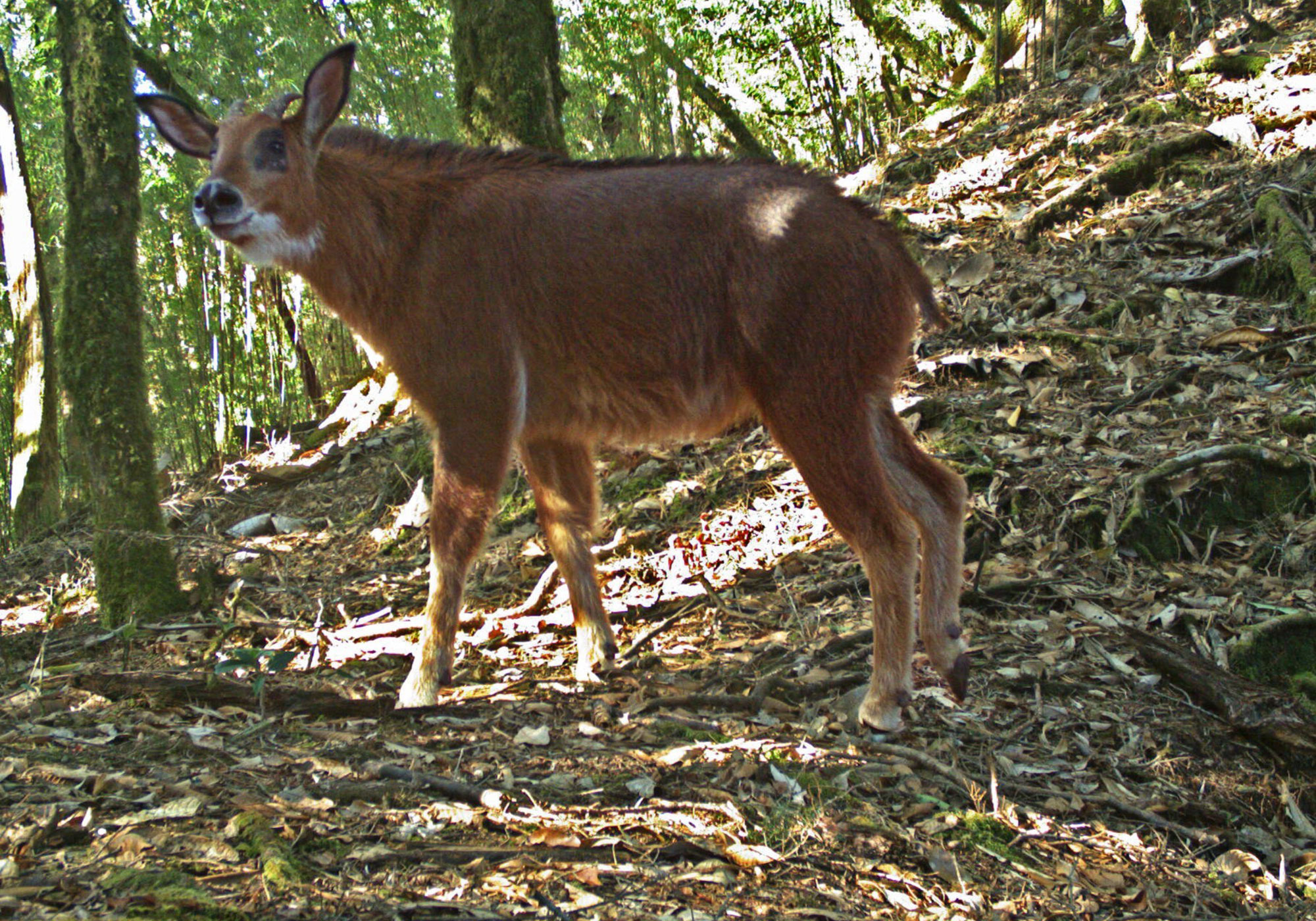 |
| KCC team trains local rangers in Gaoligongshan National Nature Reserve, Yunnan, on infrared camera deployment | An adult Red serow from Gaoligongshan, China, captured by KCC team’s infrared camera, which represents the first record of this large species in the country |
Dates
8 November 2025 (Saturday) & 13 December 2025 (Saturday)
Schedule
|
Date |
Details |
Package A |
Package B |
|
Day 1 8 November 2025 |
Indoor lecture: Learning about local mammals and infrared camera trapping techniques |
✔ |
✔ |
|
Field practices: Infrared camera deployment |
✔ |
✔ |
|
|
Sunset viewing and a simple dinner (e.g., sandwiches, wraps) at Kwun Yum Shan |
✔ |
|
|
|
Night walk: Uncovering the secrets of the nocturnal realm at KFBG |
✔ |
|
|
|
Day 2 13 December 2025 |
Field practice: Camera retrieval
|
✔ |
✔ |
|
Indoor session: Data processing and analysis of observations |
✔ |
✔ |
|
|
Results sharing and award ceremony |
✔ |
✔ |
Time
- Day 1: 8 November 2025, 1:30pm – 8:45pm (Option B ends at 5:30pm)
- Day 2: 13 December 2025, 10:30am – 4:30pm
Location
Kadoorie Farm and Botanic Garden
Target Audience
Aged 12 and above (Participants under 18 must be accompanied by an adult).
Language
Cantonese.
Fee*
- Package A (includes simple dinner and night walk on Day 1): HK$2,950
- Package B (excludes dinner and night walk on Day 1): HK$2,500
*Early bird discount of HK$200 available for registration on or before 22 September 2025
Registration Deadline
27 October 2025
Participant Feedback
“I thoroughly enjoyed the two-day workshop. It was a memorable and joyful experience. I hope to contribute to KFBG’s work in future, perhaps as a volunteer. Thank you to all the instructors for your professional guidance and leadership.”
“The combination of theory and practice was excellent. Thank you to the instructors for sharing your insights.”
Selection of past participants' excellent camera trap shots
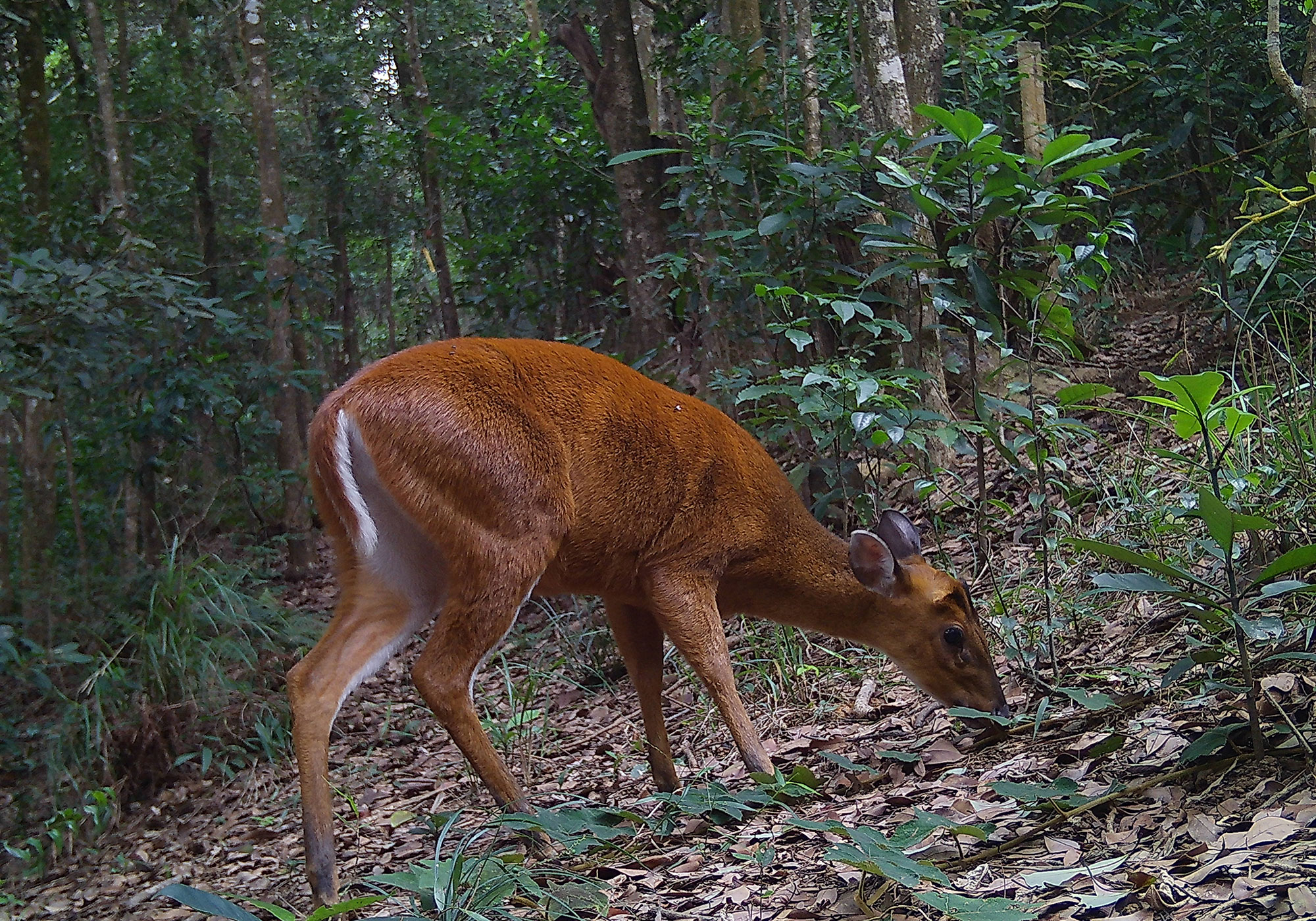 |
 |
| Northern red muntjac / Photo by Ho Pak Kei | East Asian porcupine / Photo by Leo Li |
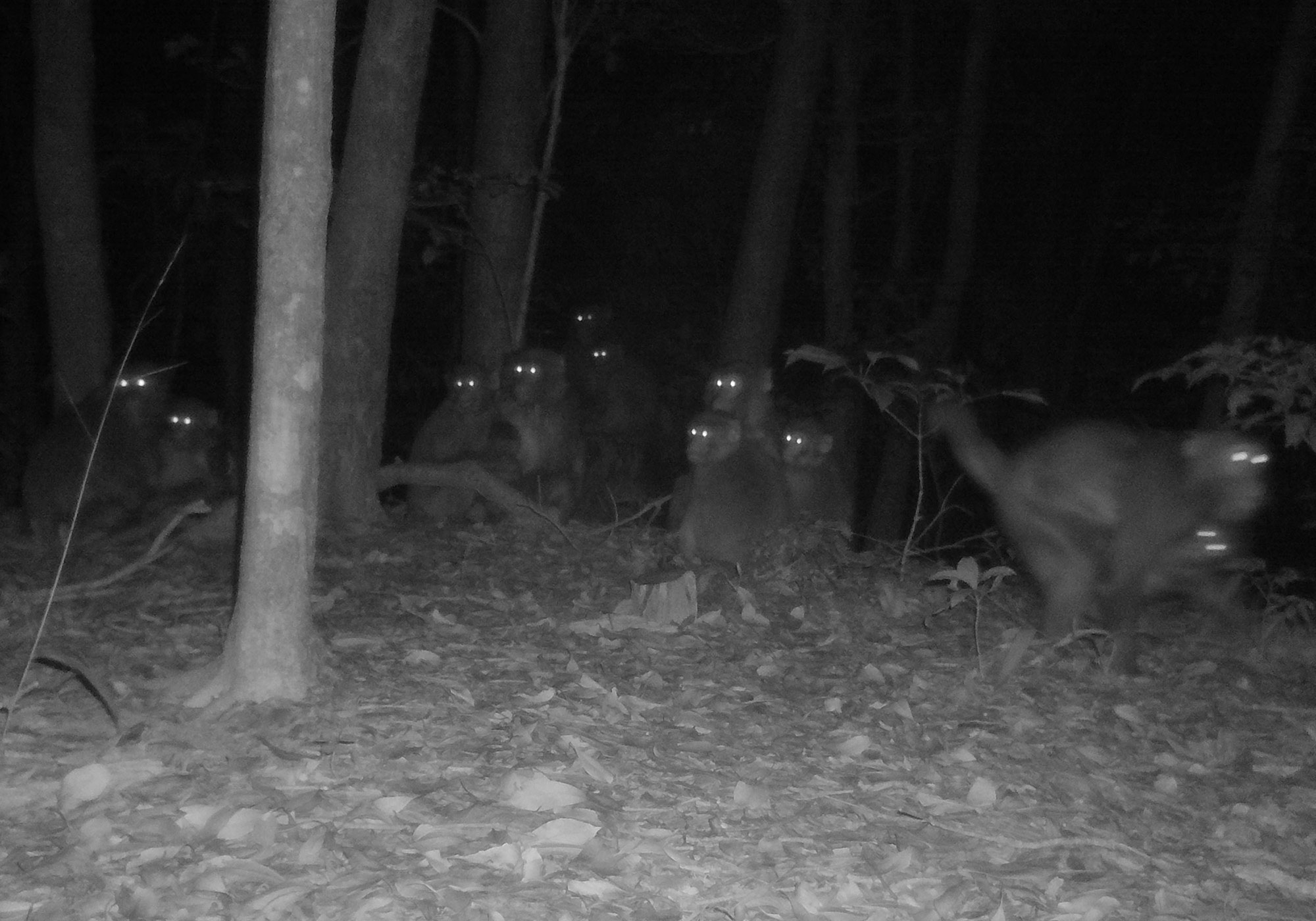 |
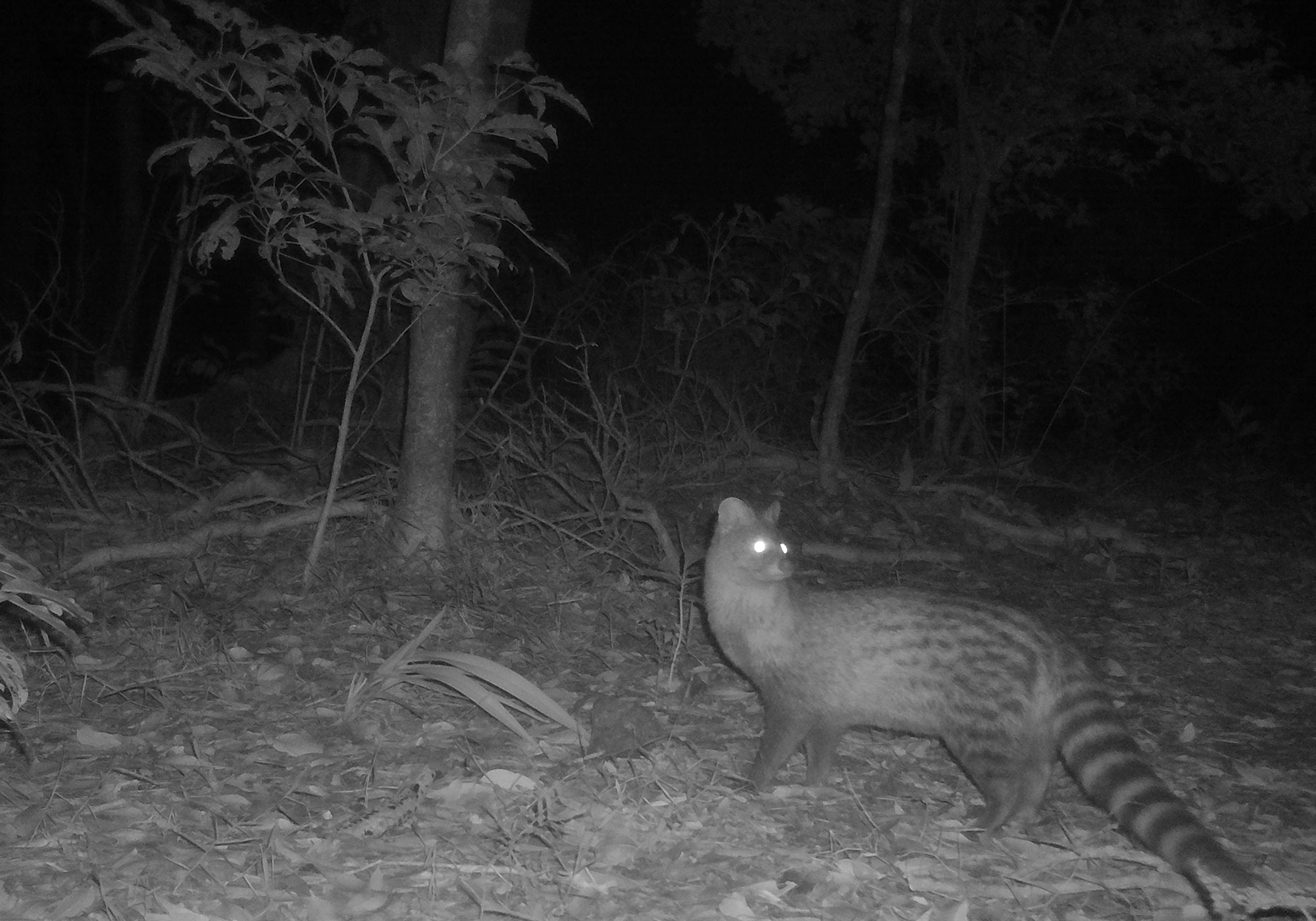 |
| Macaque / Photo by Fung Hoi Kin | Small Indian civet / Photo by Zoe Wong |
Highlights of past events
Important Notes
- Limited places available; first-come, first-served.
- Each participant must submit a separate registration form – single pricing applies.
- Full attendance across both days is mandatory to receive the workshop certificate.
- No refunds will be issued for absentees due to personal reasons. Refund requests due to illness will only be considered with a valid medical certificate.
- If the event encounters special circumstances (such as typhoons and heavy rain ) that prevent it from taking place as scheduled, rescheduling will be arranged where circumstances permit.
- All materials and tools for infrared camera trap surveys will be provided on 8 November 2025.
- Participants must bring their own laptops and card readers for image analysis on 13 December 2025, along with packed lunches.
- Drinking water stations available on-site – please bring a reusable bottle.
- Activities involve walking along uneven hill trails – participants should assess their physical capability accordingly.
- Appropriate attire is required (hiking shoes, sports clothing and hats), plus personal sun and insect protection.
- The workshop will be cancelled and refunds issued if minimum attendance (10 participants) is not met.
- The Organiser reserves the final right of decision in the event of any disputes.
Enquiries
For enquiries, please contact Ms. Tsang during office hours (Monday to Friday, 9:00am – 5:00pm)
Phone: 2483 7178
Email: kcc@kfbg.org

